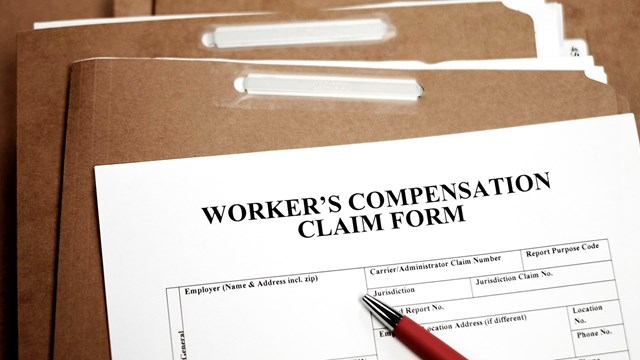In a September 1994 decision applicable to many cooperatives and condominiums in New York City, the Appellate Division,
Second Department, has determined that a cooperative housing corporation's refusal to expend funds to install a wheelchair ramp for a disabled resident constitutes a violation of the Federal Fair Housing Act and the New York City Human Rights Law. Notwithstanding the specific facts of the case, the holding in Matter of United Veterans Mutual Housing No. 2 Corp. imposes a broad responsibility upon cooperatives and condominiums to ensure that their fiscal policies are not in violation of applicable statutes to protect the disabled.
The dispute in United Veterans concerned a disabled resident confined to a wheelchair and an 800-unit Bayside, Queens garden apartment complex. For a period of ten years, the disabled resident was provided access to her apartment through use of a wooden ramp. Over time, the ramp deteriorated to such an extent that it was removed by the co-op. The board then refused to expend funds to construct a replacement ramp, but agreed that the disabled resident could install a new ramp at her own expense. The resident did so, but then filed a complaint with the New York City Commission on Human Rights contending that the cooperative was engaging in unlawful discriminatory practices.
In opposing the disabled resident's complaint, the cooperative denied the allegations of discrimination, claiming instead that the ramp built by the resident was not in compliance with the New York City Building Code and inconvenienced an elderly resident in the same building.
The two parties subsequently entered into a settlement under which the co-op agreed to construct a new ramp, at its own expense, utilizing the materials in the ramp built by the resident. However, in the settlement, the co-op emphatically reaffirmed its overall policy of refusing to make any expenditures to provide reasonable accommodations for disabled residents. Shortly thereafter, the New York City Commissioner on Human Rights issued a decision that held that the cooperative's policy of outright refusal to provide, at its own expense, any reasonable accommodations to common elements which would address the needs of disabled residents, regardless of cost, violated the Human Rights Law.
The Commissioner ordered that the co-op cease and desist its policy of refusing to expend funds to provide reasonable accommodations to disabled residents, and establish a new policy, in compliance with the New York City Human Rights Law, which individually evaluates all requests by disabled residents for accommodations or improvements that do not impose undue hardship on the co-op. The Commissioner's decision emphasized that the cooperative's blanket refusal to expend corporate funds on disability-related needs was both inappropriate and illegal.
The cooperative subsequently sought an order from the Queens County Supreme Court to have the Commissioner's determination set aside. The co-op's arguments were rejected as moot by the trial court because a 1991 amendment to the New York City Human Rights Law imposed an affirmative obligation to make reasonable accommodations for the disabled. (The law's legislative history explicitly cited the Commissioner's decision in United Veterans as a basis for the amendment.) The trial court reviewed ffb the record from the administrative hearing and determined that the cooperative's admitted refusal to expend funds to accommodate the needs of the disabled clearly supported the Commissioner's determination.
On appeal to the Appellate Division, the cooperative argued extensively that the Commissioner's interpretation violated constitutional due process because it required all other cooperative residents to pay for improvements and accommodations that will only benefit a disabled resident. The cooperative further argued that its policy of allowing disabled residents to make improvements at their own expense was in conformity with the Federal Fair Housing Act, which it claimed had provided the definitive definition of the term reasonable accommodation as it applied to a disabled person. The cooperative alleged that any state or local law which contains a contrary or more expensive construction of that term is preempted by the federal law.
The Appellate Division rejected the cooperative's arguments and affirmed the trial court's judgment enforcing the Commissioner's determination. The Appellate Division explicitly rejected the cooperative's argument concerning federal and state law, which were held not be in conflict. Both laws prohibit the refusal to make reasonable accommodations that would afford a disabled person equal opportunity to use and enjoy a dwelling unit. The co-op's policy was found to be a clear violation of the Federal Fair Housing Act and the New York City Human Rights Law. Finally, in unanimously affirming the lower court's judgment, the Appellate Division held that due process was not violated because cooperative residents were required to expend funds that solely benefit a disabled resident. The legislation under review had the purpose of preventing discrimination and protecting the disabled, thereby promoting the general welfare of the community. The Court held that legislation promoting the general welfare commonly benefits some individuals more than others.
The decision in United Veterans heralds a new era for co-ops and condos in identifying and addressing the needs of disabled residents. From now on, particular attention will have to be given to individual requests for reasonable accommodations that concern the needs of disabled residents. Since the cost of the improvement in United Veterans was minimal, the courts did not have to address the issue of a disabled resident's request for an accommodation that constitutes an undue burden upon the building community. Clearly, a requested improvement that is prohibitive in cost and threatens to deplete reserves is not a reasonable accommodation. In these financially constrained times, identifying the area between reasonable accommodation and undue burden will place additional pressures upon board members. Guidance will ultimately come from future cases which contain acts less extreme than those in United Veterans. In the interim, co-ops and condo boards will have to carefully determine what improvements can or cannot be made, and at what cost. A careless mistake could result in a claim of discrimination being filed under the Human Rights Law.
Mr. Mellon is a partner with Zetlin and DeChiara, a law firm specializing in cooperative and condominium law.







2 Comments
Leave a Comment